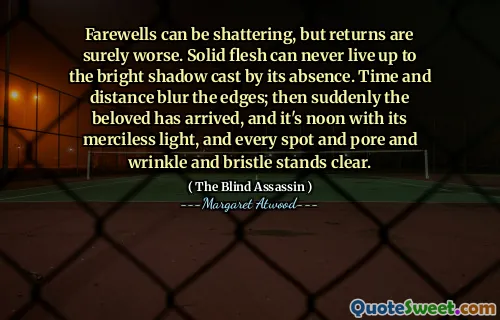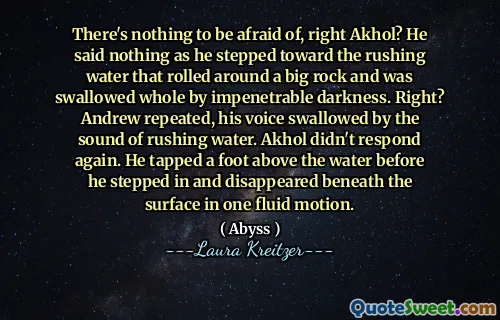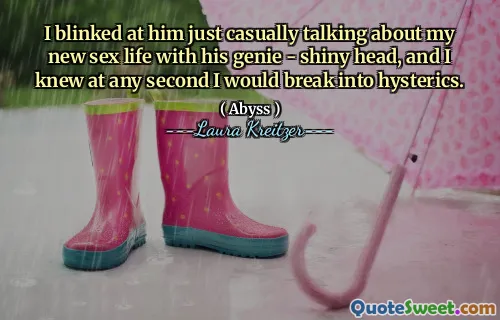She writes like an angel, it says of Laura on the back of one of the editions of The Blind Assassin. An American edition, as I recall, with gold scrollwork on the cover: they set a lot of store by angels in those parts. In point of fact angels don't write much. They record sins and the names of the dammed and the saved, or they appear as disembodied hands and scribble warnings on walls. Or they deliver messages, few of which are good news: God be with you is not an unmixed blessing.
The quote reflects a sentiment about the nature of angels and their role in literature, particularly in the context of Laura's writing in The Blind Assassin. It suggests that while angels are often idealized and associated with beauty, their function is more about recording human failings rather than creating art or inspiring stories. The description of Laura's writing as angelic contrasts with the notion that angels seldom communicate uplifting messages, portraying a dichotomy between the beauty of art and the burden of truth that angels represent.
This duality emphasizes the complexity of Laura's character and her writing. While the exterior may suggest something heavenly due to the decorative presentation of the book and the praise on its cover, the reality is much more nuanced. Angels are depicted as messengers with somber duties, hinting that Laura's work, although beautiful, might carry deeper, perhaps darker, truths about existence and human nature. Thus, the writing serves not only to enchant but also to confront the reader with uncomfortable realities.





